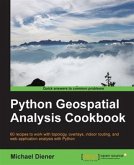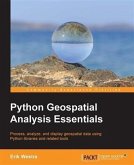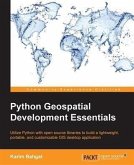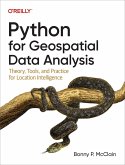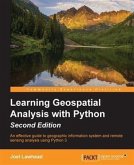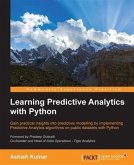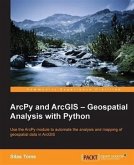"Learning Geospatial Analysis with Python" uses the expressive and powerful Python programming language to guide you through geographic information systems, remote sensing, topography, and more. It explains how to use a framework in order to approach Geospatial analysis effectively, but on your own terms.
"Learning Geospatial Analysis with Python" starts with a background of the field, a survey of the techniques and technology used, and then splits the field into its component speciality areas: GIS, remote sensing, elevation data, advanced modelling, and real-time data.
This book will teach you everything there is to know, from using a particular software package or API to using generic algorithms that can be applied to Geospatial analysis. This book focuses on pure Python whenever possible to minimize compiling platform-dependent binaries, so that you don't become bogged down in just getting ready to do analysis.
"Learning Geospatial Analysis with Python" will round out your technical library with handy recipes and a good understanding of a field that supplements many a modern day human endeavors.
Dieser Download kann aus rechtlichen Gründen nur mit Rechnungsadresse in A, B, BG, CY, CZ, D, DK, EW, E, FIN, F, GR, HR, H, IRL, I, LT, L, LR, M, NL, PL, P, R, S, SLO, SK ausgeliefert werden.



